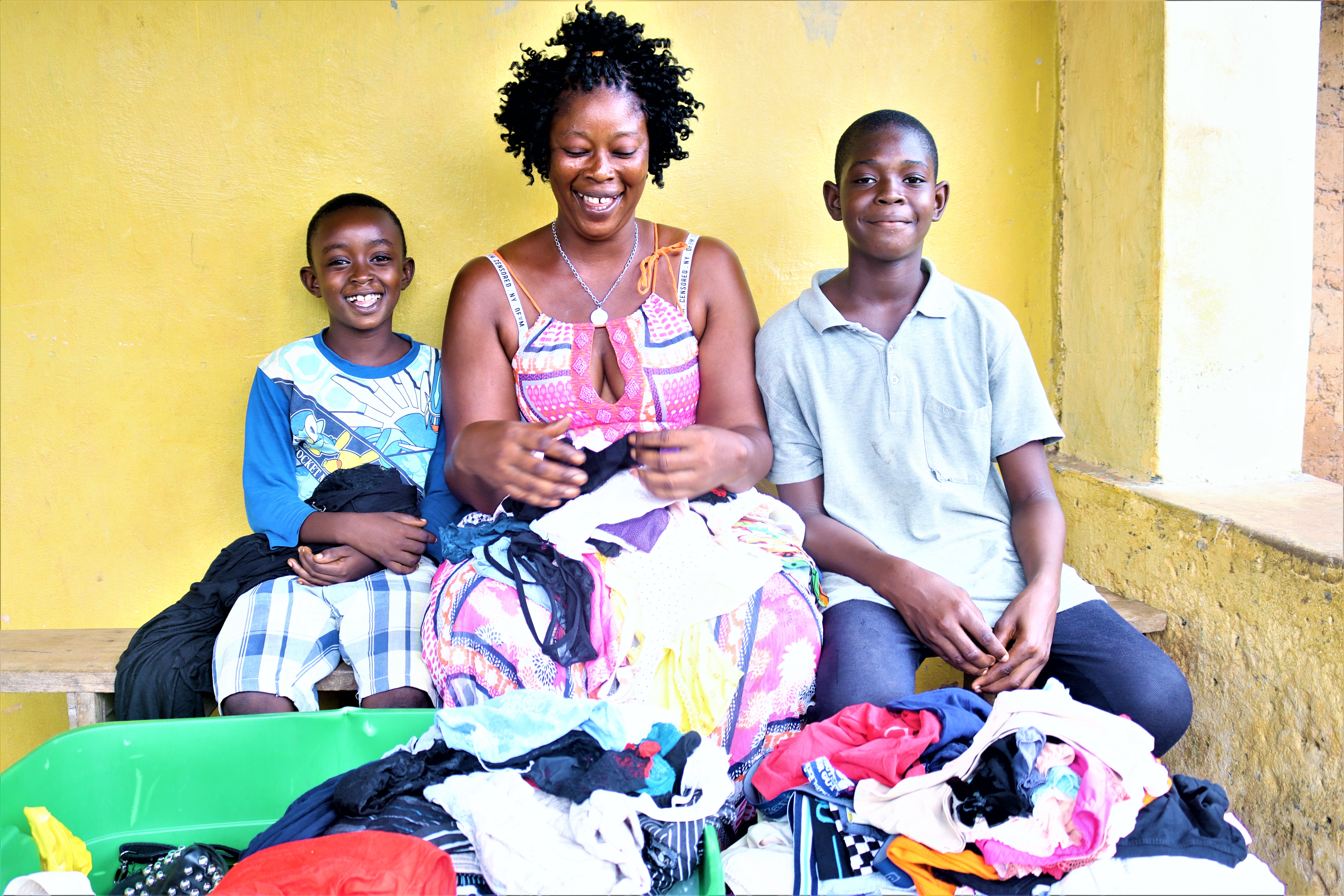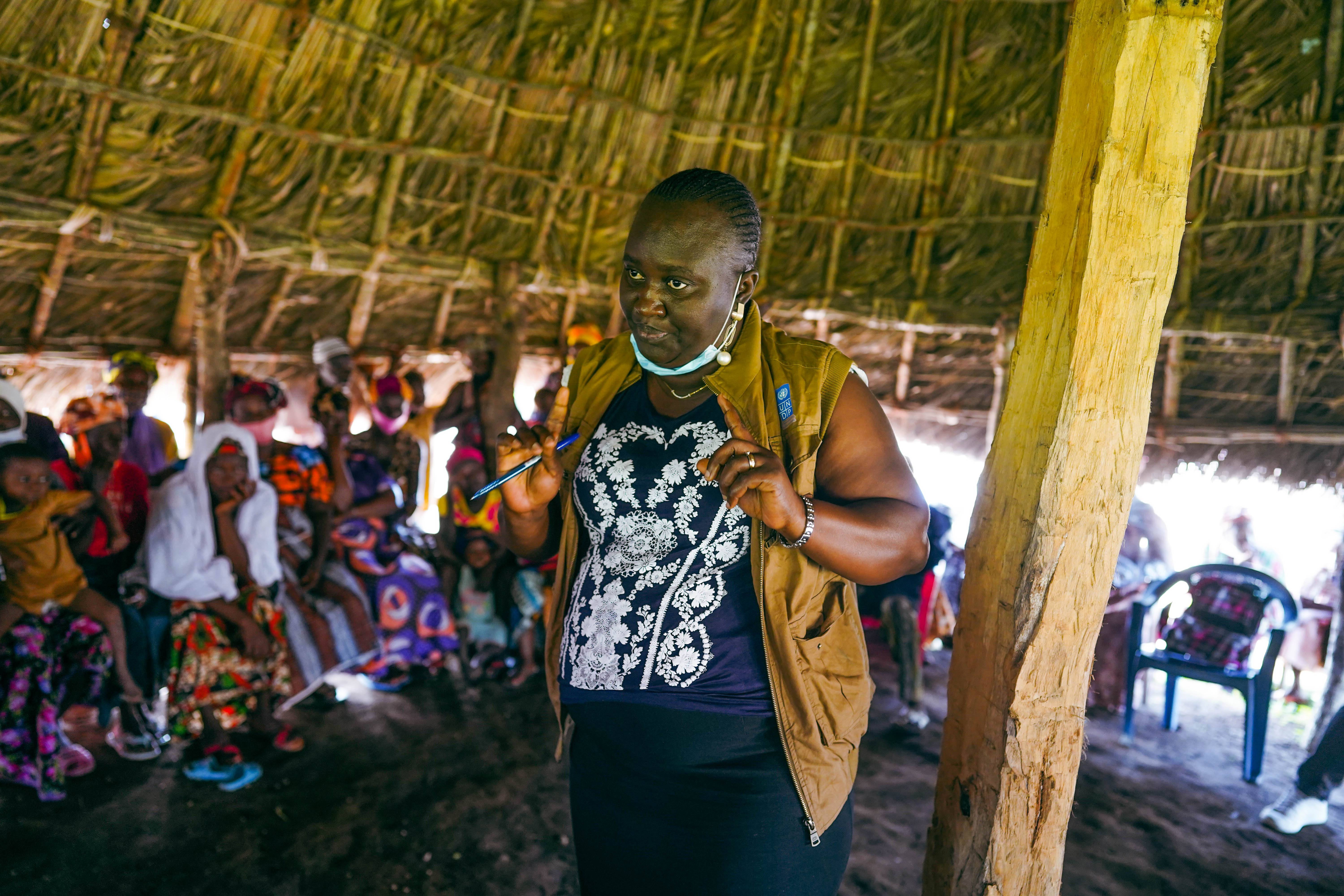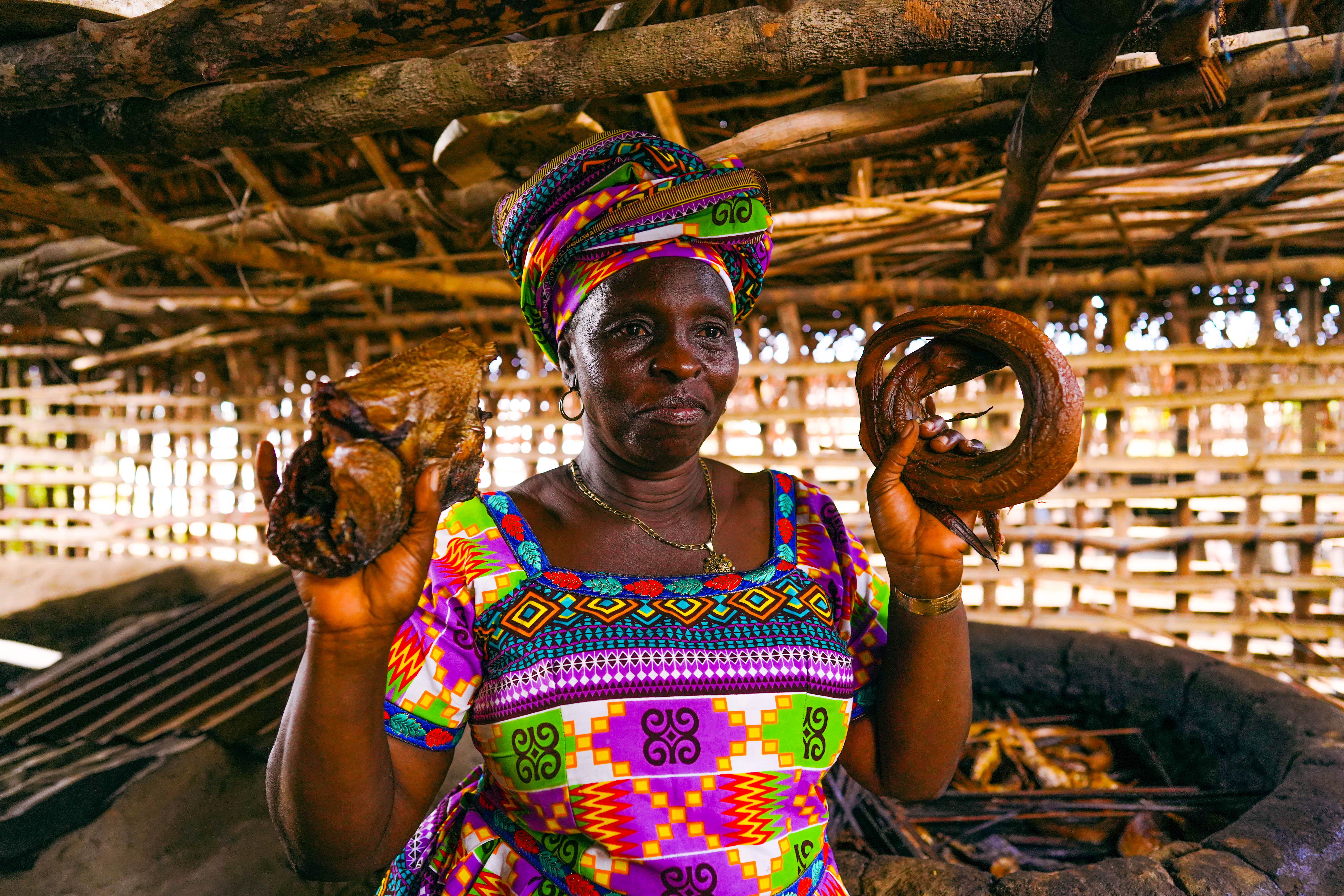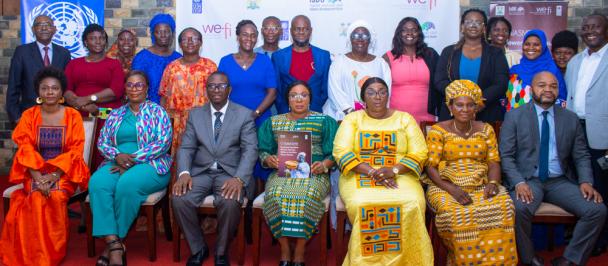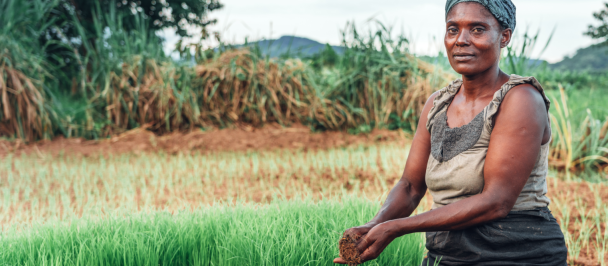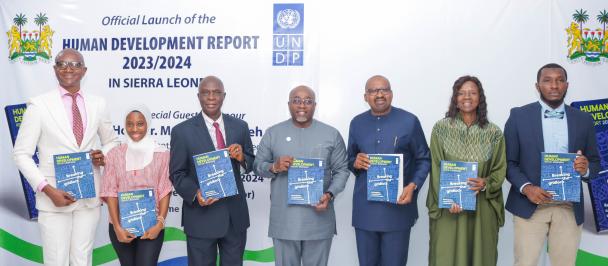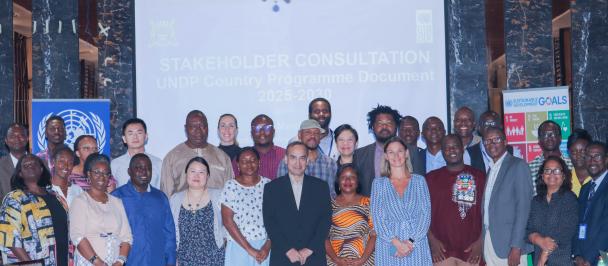Photo showing Mabinty Yilla and her two boys at their residence, displaying her used-clothing business after she had returned to the township of Kambia District. Photo Credit: @UNDP/Mohamed Kanu
“I fled to neighboring Guinea for fear of being arrested by the Sierra Leone Police because I could no longer pay a microcredit after my business was seriously impacted by and went spiral in the wake of Covid-19”
For Mabinty Yilla, single mother of three children, “receiving a grant from UNDP was like receiving a life-saving pill that brought life to my family and restored my pride and confidence from community stigmatization.”
Mabinty is from Kambia District and part of a cohort of 500 frontline businesswomen in border communities (Sulima, Jendema, and Kambia Town) who revived her business from the shocks of Covid-19 after she had received seed grant of US$140 through implementing partner SEND Sierra Leone, to build resilience among businesswomen even in the wake of the pandemic.
With support from UNDP, Mabinty is now among 500 all-female Village Savings and Loans Association (VSLA) members established in two districts (Pujehun and Kambia Districts), a structured system of saving, borrowing, and lending of money generated from individual contributions; nurturing a more sustainable financial journey. Mabinty has revived her used-clothing business in her birth town, contributing to the VSLA, and savings from her small “cash box” is offsetting her debt from a high-interest microcredit scheme that almost landed her behind bars before she fled.
Covid-19 negatively impacted the lives of citizens in border communities, especially women traders who are largely the main source of income for their families and contribute to the economic viability of the borderland communities.
Recognizing the shared threat of the Covid-19 pandemic, particularly on to the health and economic security of the people of Mano River Union border communities, UNDP is providing further support in a form of seed grants to women traders in border communities to mitigate future shocks from outbreaks and build a shared and holistic recovery post-Covid-19.
Photo showing Kadiatu Bachalle Taylor, UNDP’s Gender Analyst during community engagement with businesswomen and village authorities in Kambia District. Photo Credit: @UNDP/Mohamed Kanu
“In such unprecedented times, there are two essential things we can do to support small businesses- mitigate the direst consequences from most vulnerable populations to help slow and reduce the impact of the pandemic, and to give women the tools to realize their potential to run businesses; broadening avenues to contribute to community welfare and economic growth,” said Kadiatu Bachalle Taylor, UNDP’s Gender Analyst.
Tailoring these approaches to specific community circumstances could help save thousands of livelihoods in poor communities and strengthen economies against future shocks while enhancing security and social safety nets, Kadiatu added.
Photo showing Yata Jagwa from Sulima Township in Pujehun District with a beam of smile over UNDP’s support to revive her fish business from the shocks of Covid-19. Photo Credit: @UNDP/Mohamed Kanu
Yata Jagwa has lived in Sulima, Pujehun District for 25 years as a successful fish monger. Over the years, Yata’s fish business grown from Sulima market to Kailahun District in the south, to neighboring Liberia. Her success of doing business was short-lived by the outbreak of Covid-19, inter-district lockdowns and government restrictions on cross border trade. Like any other business, her fish business went through trials and couldn’t withstand the shocks. Yata was left bewildered and despaired. Three months after she had received her $140 grant from UNDP, Yata’s business is up and running again, and this time, backed with trainings on the formation of VSLA groups and sustainable alternative livelihood options including relevant financial management techniques needed to be part of a community loan scheme. Additionally, UNDP has procured 25 solar refrigerators for women fishmongers in Yata’s chiefdom, and vegetable producers in Kambia District to be managed as cooperatives so that these women (fishmongers and vegetable producers) are able to preserve and add value to their fish and vegetable products.
Prone to foreign boats and foreign fishing crew who travelled to fish, UNDP’s intervention to Sulima will benefit its seashores with the installation of light-emitting diodes (LEDs), a community need to augment joint-border security and to ease trade. To enhance Personal security of women traders in borderland communities, all 500 women traders will be equipped with solar lamps to enable them (women) trade even at sunsets.
Influencing negative masculinity
In about 170 countries where UNDP works, we believe that small businesses are the engine that will drive national economies to “build back stronger” during and post Covid-19. Our quick impact intervention in Pujehun and Kambia Districts is also targeting 100 male youth to transform negative masculinity while recognizing the silver linings of men’s involvement to promote equal access and control to resources and improved business environment.
Thanks to funding from the Africa Borderland Initiative and to our Implementing Partner, SEND Sierra Leone.

 Locations
Locations